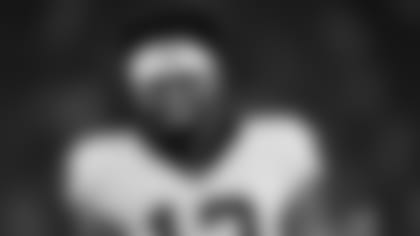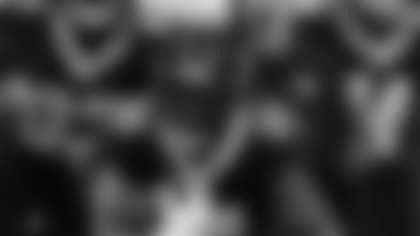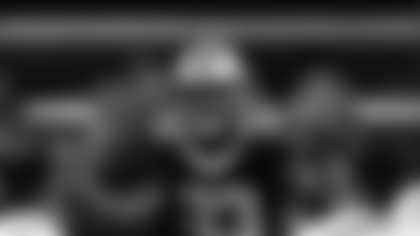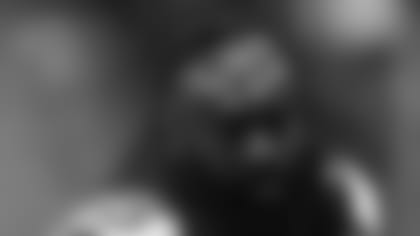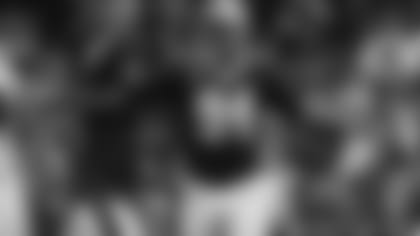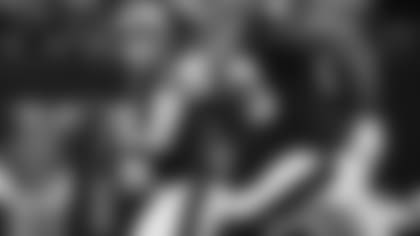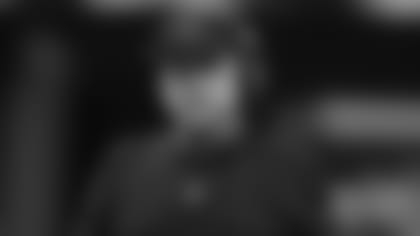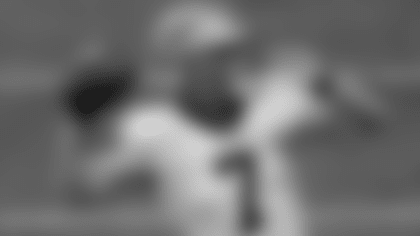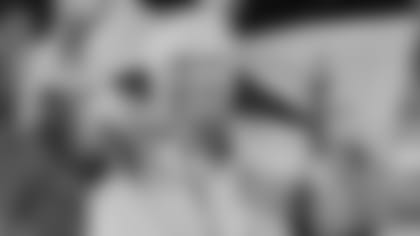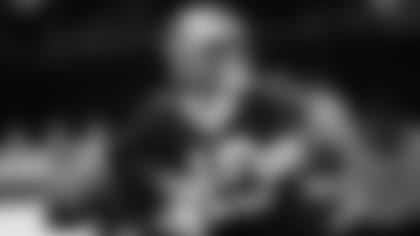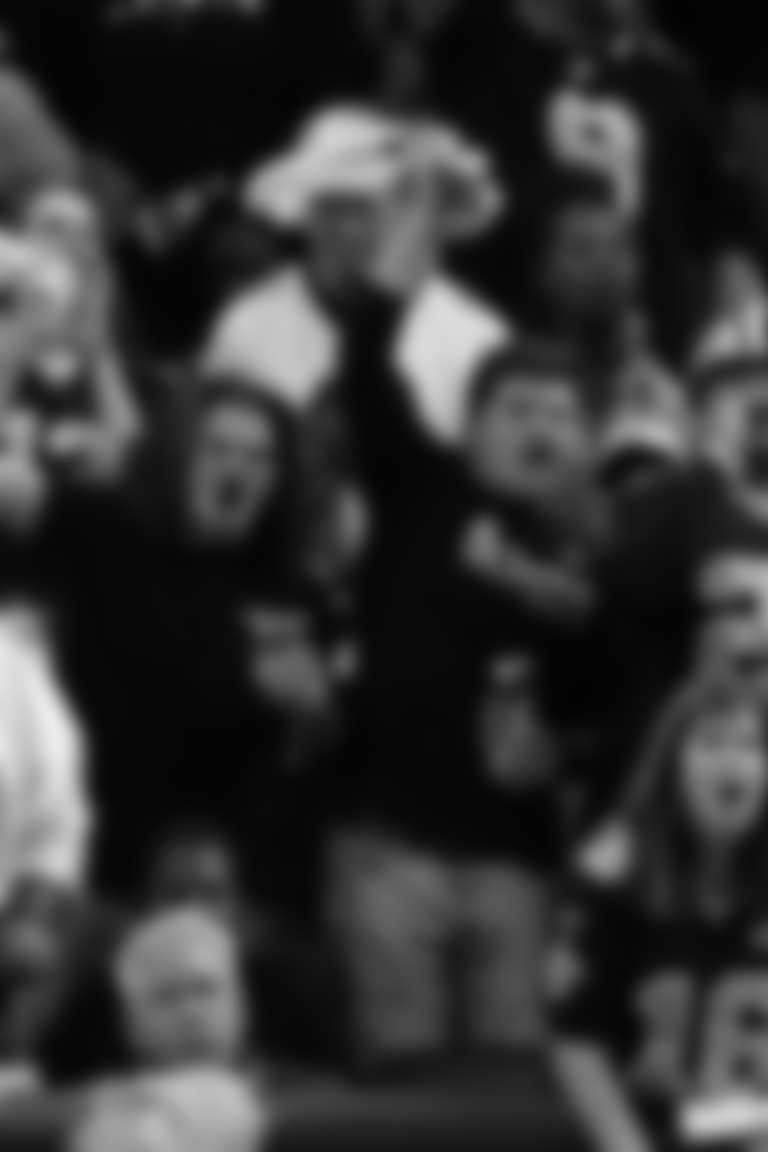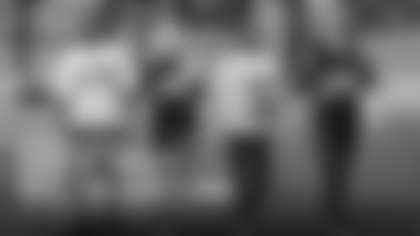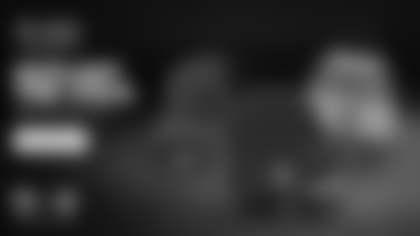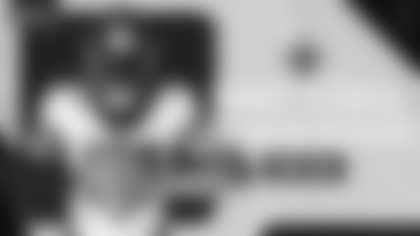When 25-year-old receiver Chris Olave caught six passes for 98 yards against New England and followed with 98 more and two touchdowns in Chicago, it wasn't the numbers that hit him hardest — it was a feeling he needed badly.
Olave felt normal.
As a rookie with the New Orleans Saints in 2022, he caught five passes for 80 yards and followed with nine catches for 147 yards in weeks 2 and 3. In the first two games of '23, he caught eight passes for 112 yards and six for 86 yards, then added eight more catches for 104 yards in week 3. And in '23 he totaled 12 catches for 233 yards in weeks 12 and 13. But lately, his confidence had slipped.
"Of course, you feel like yourself in practice because you're not really getting hit," he said. "But I'd say (in weeks 3 or 4), I felt like myself again. Just catching the ball, (and) taking a couple of hits to make sure that I'm straight."
He needed to take a hit because, as with all injuries, Olave needed to test his. Except, it wasn't an ACL repair or ankle sprain that needed to hold up under the stress of a cut or stop-and-start on a route. Or healed shoulder separation that needed to survive a fall. Or a fractured rib that had to show it'd calloused by withstanding a shoulder to it.
It was his brain.
On Nov. 3, 2024 — the 39th game of his NFL career — Olave suffered his fourth concussion since being drafted by the Saints in the first round, No. 11 overall, in 2022. He needed to absorb a blow to the helmet before he totally could feel right.
"That's why I probably loosened up a couple of games ago," said Olave, who leads New Orleans in receptions (55), receiving yards (560), receiving touchdowns and total touchdowns (three) as the Saints (1-8) prepare for Sunday's game against the Panthers (5-4) at Bank of America Stadium in Charlotte, N.C. It will be Olave's first trip back to Carolina, and first game against the Panthers, since he sustained a concussion while playing them last season.
"I've probably taken a couple of shots. I feel a lot better, I feel a lot more confident now." Trepidation was warranted and understandable because, for a fleeting moment, Olave considered leaving the game. "Probably right after the injury it was a thought — right after I was taken into the ambulance," he said. "But not (again) after that."
The thought didn't end there for his family, though. Initially, they were adamant he shouldn't play again.
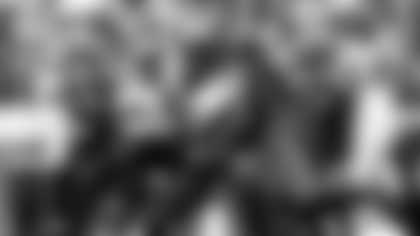
"Hell naw," Olave said, laughing. "My people were not cool with it. They've seen me do that a couple of times, and they know it's nothing to play with — especially post-football. They were just looking out for me, trying to make sure I'm good. They kept asking me if I still want to play, telling me I'm going to be straight whether I play football or not. They were just looking out for me as a person.
"Mom was going crazy. Pops was cool. He's more just trying to be there for me outside of football, make sure I'm doing things — hobbies and all that stuff."
But that doesn't mean his father, Raul, initially felt comfortable with his return to football.
"When he got the concussion, nobody was in Carolina. So that was tough," Raul said. "I jumped on the next flight from San Diego to New Orleans. My first thought was: retire."
It took the steady reassurance of specialists to quiet his family's fears.
"When he got the first concussion, I really wanted him to go see a specialist and he was like, 'Aw, dad, we'll see one after the season, I promise,'" Raul said. "Then, when he got the (Carolina) one I was like, 'Nah, that's it. I can't let you get back on the field until we talk to somebody.' So, that's when we ended up going to Pittsburgh to see a concussion specialist and a brain specialist.
"Going there, my intention was for him to not play football anymore. But they pretty much reassured me, showed me all the CAT scans and all of that, showing me that he wasn't at any major risk right now. Me and his mom, it made us feel a lot better for him to continue on with his career."
For the teammate who likely is his closest friend in the locker room, Olave's wishes were the only ones that mattered.
Cornerback Alontae Taylor, the Saints' second-round pick in '22 (No. 49 overall) is in Olave's draft class. They shared a hotel room as rookies after they were drafted, they've attended concerts and other off-the-field events together, and they have sought each other out for feisty, borderline-testy, one-on-one training camp drills. The latter helped each sharpen skills and tighten the friendship.
"I wanted him to do what he wants to do," Taylor said. "Everybody has their opinion — I get it, it makes sense. But I feel like I know Chris very well, and Chris is a guy who wants to continue to prove himself, a guy who wants to continue to become who he knows he can become.
"So, for me, it was more so, 'What do you wanna do, bro?' And I just fully support him on what he wants to do. I think at the end of the day, that's what matters the most, is him just being happy. And I think if he would have retired or done what other people said, maybe he wouldn't have been able to sit well with himself later on in life."
Olave is back to the top of the statistical heap for the Saints. The lack of team success gnaws at him, but Olave leads New Orleans in receptions and receiving yards, just like he did his first two seasons, when he caught 72 passes for 1,042 yards in '22, and 87 for 1,123 yards in '23.
"I love it," he said of the offense installed by first-year coach Kellen Moore. "They're using me in all types of ways. A lot of underneath stuff, a lot of over the middle and we're starting to open up the deep game, too. I'm excited going forward."
Olave doesn't wear a special helmet or a Guardian Cap, designed to reduce impact and concussions, popularized during teams' offseason workouts. "I'm just wearing the No. 1-rated helmet," he said. "I feel like that's the best thing I can do to try to protect myself."
In truth, he's not just protecting himself. He's also calming his family and protecting his future, which includes a nearly 2-year-old son.
"It was tough. It's still tough," said Raul, who plans to attend almost every game this season. "When he got that little swing pass and he got laid out early in the season, that was tough. He's got a son now, so I don't want him to…you see the stories. Being from San Diego we saw what happened to Junior Seau."
Seau, a Pro Football Hall of Fame linebacker, committed suicide in 2012. His autopsy revealed he had chronic traumatic encephalopathy (CTE), a brain disease caused by repeated head injuries, believed to be a possible factor in his suicide.
"You've got all those thoughts going through your head," Raul said. "At the end of the day, I care more about my son than I care about the game of football. That was my number one worry — that he was going to be OK, be able to raise his kid and do stuff like that."
His father's concern won't totally abate, but at present everything's pointing in the right direction for Olave.
"The first game of the season was the first game that we took (Chris' son) down to the field. Chris took his helmet off and ever since then, all this little dude is talking about is football," Raul said. "He wakes up every morning, like, 'Football? Football?'"
The answer:
Yep. Football. Daddy plays football.



